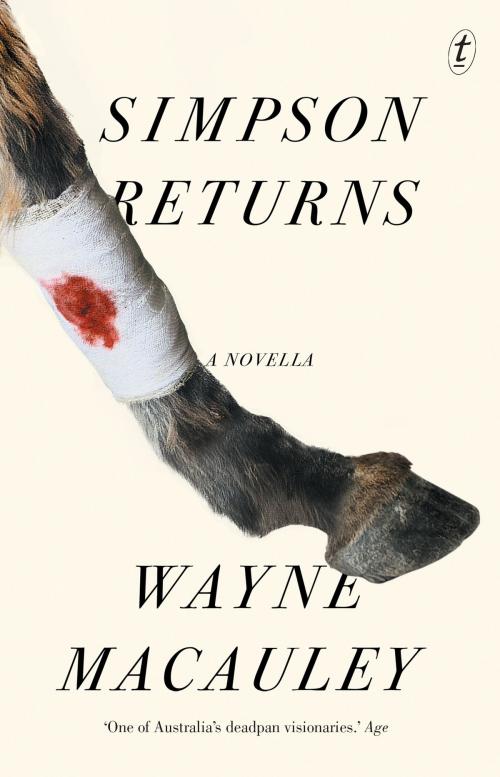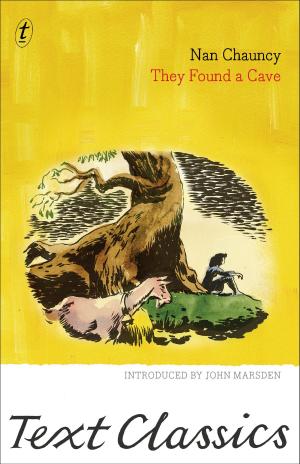| Author: | Wayne Macauley | ISBN: | 9781925774313 |
| Publisher: | The Text Publishing Company | Publication: | April 2, 2019 |
| Imprint: | Text Publishing | Language: | English |
| Author: | Wayne Macauley |
| ISBN: | 9781925774313 |
| Publisher: | The Text Publishing Company |
| Publication: | April 2, 2019 |
| Imprint: | Text Publishing |
| Language: | English |
Ninety years after they were thought to have died heroically in the Great War, the stretcher-bearer Simpson and his donkey journey through country Victoria, performing minor miracles and surviving on offerings left at war memorials. They are making their twenty-ninth, and perhaps final, attempt to find the country’s famed Inland Sea.
On the road north from Melbourne, Simpson and his weary donkey encounter a broke single mother, a suicidal Vietnam veteran, a refugee who has lost everything, an abused teenager and a deranged ex-teacher. These are society’s downtrodden, whom Simpson believes can be renewed by the healing waters of the sea.
In Simpson Returns, Wayne Macauley sticks a pin in the balloon of our national myth. A concise satire of Australian platitudes about fairness and egalitarianism, it is timely, devastating and witheringly funny.
‘Novelist Wayne Macauley has re-cast Simpson in far more human terms than much of the early (and later pop) historiography, as the eternal helper wandering through a later Australian landscape, social and geographic. It is masterful and beautiful, and a triumph in thought-provocation. Macauley’s Simpson Returns and Fathi’s Our Corner of the Somme are the most challenging and thought-provoking things I’ve read about Anzac since the end of the profligate four-year centenary.’ Guardian
‘Wayne Macauley’s novella is a limpid meditation on the nature of selflessness and compassion, juxtaposed with striking, bleak, often piteous tales from those our nation tends to grind underfoot. It compels us to reflect on the gap between aspiration and action, on why the ideals Simpson embodies in our culture don’t play a larger role in everyday life.’ Age
‘By placing Simpson in a modern context, Macauley is able to ask questions about who we really are as a nation, about compassion and hypocrisy, and if we have changed at all over the past 100 years…The Simpson of legend, the one we are most familiar with, was originally created to sell war. In contrast, the Simpson of Macauley’s book – and, based on the few truths we know, of real life – is more about compassion.’ Guardian
Ninety years after they were thought to have died heroically in the Great War, the stretcher-bearer Simpson and his donkey journey through country Victoria, performing minor miracles and surviving on offerings left at war memorials. They are making their twenty-ninth, and perhaps final, attempt to find the country’s famed Inland Sea.
On the road north from Melbourne, Simpson and his weary donkey encounter a broke single mother, a suicidal Vietnam veteran, a refugee who has lost everything, an abused teenager and a deranged ex-teacher. These are society’s downtrodden, whom Simpson believes can be renewed by the healing waters of the sea.
In Simpson Returns, Wayne Macauley sticks a pin in the balloon of our national myth. A concise satire of Australian platitudes about fairness and egalitarianism, it is timely, devastating and witheringly funny.
‘Novelist Wayne Macauley has re-cast Simpson in far more human terms than much of the early (and later pop) historiography, as the eternal helper wandering through a later Australian landscape, social and geographic. It is masterful and beautiful, and a triumph in thought-provocation. Macauley’s Simpson Returns and Fathi’s Our Corner of the Somme are the most challenging and thought-provoking things I’ve read about Anzac since the end of the profligate four-year centenary.’ Guardian
‘Wayne Macauley’s novella is a limpid meditation on the nature of selflessness and compassion, juxtaposed with striking, bleak, often piteous tales from those our nation tends to grind underfoot. It compels us to reflect on the gap between aspiration and action, on why the ideals Simpson embodies in our culture don’t play a larger role in everyday life.’ Age
‘By placing Simpson in a modern context, Macauley is able to ask questions about who we really are as a nation, about compassion and hypocrisy, and if we have changed at all over the past 100 years…The Simpson of legend, the one we are most familiar with, was originally created to sell war. In contrast, the Simpson of Macauley’s book – and, based on the few truths we know, of real life – is more about compassion.’ Guardian















